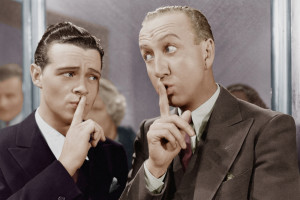Broadcast Lawyers to FCC: Can We Talk?

WASHINGTON—Broadcast attorneys are asking incentive auction organizers when they can talk, already. Now that the reverse auction is complete and new TV station channel assignments are being finalized, attorneys say there’s no more need for the quiet period that prohibited communications among broadcasters during the auction.
“I am writing to encourage the FCC to expeditiously clarify that its incentive auction prohibited communications rules no longer apply to information concerning the actions of any broadcast television station in the reverse auction,” said Kathleen A. Kirby, co-chair of the Telecommunications, Media & Technology Practice Group at Wiley Rein LLP in Washington, in a Jan. 30 filing with the Federal Communications Commission.
In its auction Bidding Procedures Public Notice released Aug. 11, 2015, the commission said it would impose a “prohibition on communicating information relating to bids or bidding strategies, such as non-public information that bidders may access in the auction system, to broadcast licensees eligible to participate in the reverse auction or to forward auction applicants, subject to specified exceptions,” involving joint ownership and channel-sharing arrangements.
The quiet period kicked in more than a year ago. The closing conditions of the auction were met Jan. 18 when forward auction bidding reached two necessary fiscal thresholds.
Kirby noted that the commission’s “Post-Incentive Auction Transition Scheduling Plan,” released last Friday, said that “Since the final stage rule has been met, bidding in the reverse auction is complete, although forward auction is still ongoing. Accordingly, some relief from the prohibition for communications among broadcasters may be appropriate, particularly where doing so would assist the public interest in a smooth post-auction transition.”
So what’s the hold-up, Kirby inquired.
“Absent further clarification, the ongoing uncertainty regarding the prohibited communications rules threatens to undermine the commission’s repacking efforts,” she wrote.
Preston Padden, former ABC lobbyist who represented a sellers coalition earlier in the auction process, sounded a similar note last week:
“It is hard to understand why the FCC continues to fret about communications that could reveal broadcaster ‘bids and bidding strategies’ even though broadcaster bidding is over—finished,” he said in an email accompanying his filed comment.
See more TV Technology coverage at our spectrum auction silo.
Also see....
Aug. 19, 2015
“Shh! Public TV Questions Auction Quiet Period”
Public stations are not alone in their quest for quiet period details. DTV Utah, a consortium of eight TV stations serving the Salt Lake City market, also asked the FCC how they can navigate the quiet period.
The professional video industry's #1 source for news, trends and product and tech information. Sign up below.
